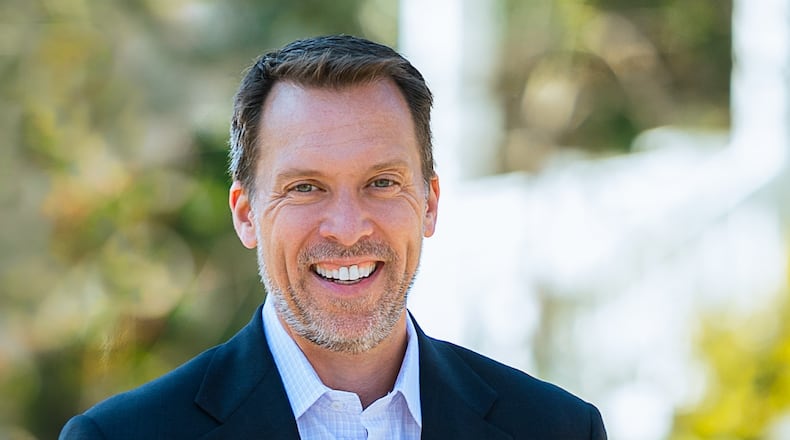Doug Shipman has never held elected office, and before this year his name had never been on a ballot.
But come January, Shipman will be launched into the No. 2 elected position in Atlanta city government as he takes on the mantle of City Council president, the job currently held by Felicia Moore, who passed up a reelection bid to run for mayor this year.
Shipman, the founding CEO of the National Center for Civil and Human Rights and former head of the Woodruff Arts Center, won the runoff for council president over longtime Councilwoman Natalyn Archibong last Tuesday, taking 54% of the vote.
Throughout Shipman’s campaign, he argued a new voice was needed on the council and said his executive leadership experience can help make the city run better.
“You saw voters voting for fresh leadership and voting for folks they believe are going to collaborate,” Shipman said in an interview Friday.
As council president, he will be in charge of running the biweekly council meetings and will appoint members and chairs to city council committees. He can’t introduce legislation and will only vote in the event of a tie. He will also be second in the line of succession to lead the city, taking over if Mayor-elect Andre Dickens leaves his post.
Shipman said he hopes to strengthen the level of engagement and interaction the city has with residents and their communities. He said he’s considering holding some council meetings at places other than City Hall, and said during his campaign that he hopes to be the city’s “explainer-in-chief,” using data and graphics to communicate complicated issues to the public.
“I will spend probably more time outside of City Hall than inside of it,” he said.
Shipman got some rest and quality time with his family last week after a busy runoff period, and plans to get to work this week formally preparing for his transition into office. That includes forming a transition team and setting up meetings with all of the members of the new council. Shipman himself will have to learn some of the ropes at City Hall, and plans to look for advice and support from some outgoing councilmembers, former council presidents and Moore.
He’ll also meet with the incoming mayor, whom he happened to run into on Election Day. Shipman said he and Dickens have known each other for several years and worked together on civic and nonprofit issues before.
Shipman will lead a 15-member council made up of six newcomers and two former councilors — Mary Norwood and Alex Wan —making a return to the legislative body.
“I’m hopeful it will be a very substantive council. One that really thinks about the implications of policy-making,” Shipman said.
On Election Day, while Archibong got the majority of votes across southwest Atlanta, Shipman won on much of the Eastside. He performed especially well in Buckhead, taking 90% of the vote in some precincts that were on the losing side of the mayor’s race.
Faced with the threat of Buckhead cityhood, Shipman said city leadership should be a visible, united front against that idea.
“I am very, very committed to playing whatever role that I can to not only make sure that we don’t have a Buckhead City, but make sure that Buckhead feels a part of the city, has their issues addressed,” he said, adding that “the same issues in Buckhead are the exact same issues I heard in southwest Atlanta.”
For more detailed information about this race, visit AJC.com/news/Atlanta-mayors-race-2021/ for the AJC’s extensive coverage of the Race for City Hall.
About the Author
Keep Reading
The Latest
Featured


